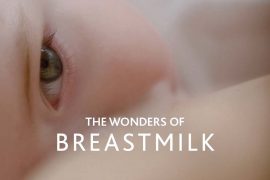“Fed is Best”
This is the most recent part of the dialogue and one which also can’t be ignored. Of course babies need feeding, by whichever means necessary and/or desired by the parent, and no-one with any sense should be suggesting otherwise. Receiving sufficient milk is clearly essential and in any case where this is not realised, professionals must be held to account. But the increasing use of “Fed is Best” as a catchy promotional phrase is troubling. Having a ‘fed’ baby is a bare-minimum standard. Not a best one.
This slogan is appearing to be effective in further driving doubt and deflection.
Doubt into the biological competence of all women’s bodies to be able to produce milk for their children and deflection from the significant body of evidence, accumulated over many years of research, that is available on how breastfeeding is in fact different to formula, not only in developing countries (as is often argued) but indeed, across the industrialised world as well.
Many headlines in the media that undermine the significance of breastfeeding, are taken from studies peppered with methodological issues. One of the most common of these issues are the diluted definitions of what constitutes their breastfeeding sample groups. This group has been known to include any babies who have ever been breastfed – that is, they are classified as having been breastfed, even if they only ever had, 1 or 2 breastfeeds! In such cases, it is hardly surprising that there are minimal (if any) differences found.
No research claims that breastfeeding eliminates ill health….what it does do is alter the risk compared with non-breastfeeding. There will always be breastfed babies who are ill and/or grow up to develop disease and breastfeeding women who subsequently develop breast or ovarian cancer. As there will always be formula-fed babies who lead perfectly healthy lives and women who have not breastfed, who remain cancer-free. It is crucial to remember that the differences are significant across populations and not simply when pairing one individual up against another.
We should all have the right to be:
- Given impartial and rigorous evidence-based information to make our own informed choices.
- Respected in the individual choices we then make. Whatever they are.
- Supported by professionals fully equipped to do the job and further supported by society at large.
This isn’t happening nearly enough. So in the meantime, it is my hope for all mothers to at least know this:
It is not your fault if things don’t go to plan.
References:
Borra C, Iacovou M, Sevilla A. New Evidence on Breastfeeding and Postpartum Depression: The Importance of Understanding Women’s Intentions. Maternal and Child Health Journal. 2014;19(4):897-907.
Brown A, Rance J, Bennett P. Understanding the relationship between breastfeeding and postnatal depression: the role of pain and physical difficulties. Journal of Advanced Nursing. 2015;72(2):273-282.
Originally published on Huffington Post. Vanessa Christie (MSc, MN, IBCLC, RHV, RNC, CIMI) is one of the UK’s leading Lactation Consultants and Early Parenting Experts. She is a speaker for The Baby Show and regularly writes for parenting magazines and blogs. To book an online consultation with Vanessa please visit www.vanessachristie.com











I found this article to be true in ways I knew in my heart to be true but my mind wasn’t even aware of it consciously until I read this. Struggling to breast feed my baby who spent her first week in a NICU while I spent her first week hospitalized at a separate hospital is a huge struggle and it feels nice to know that someone else notices that people pressure you to formula feed and to give up trying to breast feed. I’ve had people laugh at me for lugging my breast pump places. I’ve had hospital staff tell me maybe I should just give up on it because I’m too sick. I’ve had people get annoyed with me because I can’t go places because I need to pump. Just reading this article tho made me realize at least I am not alone.